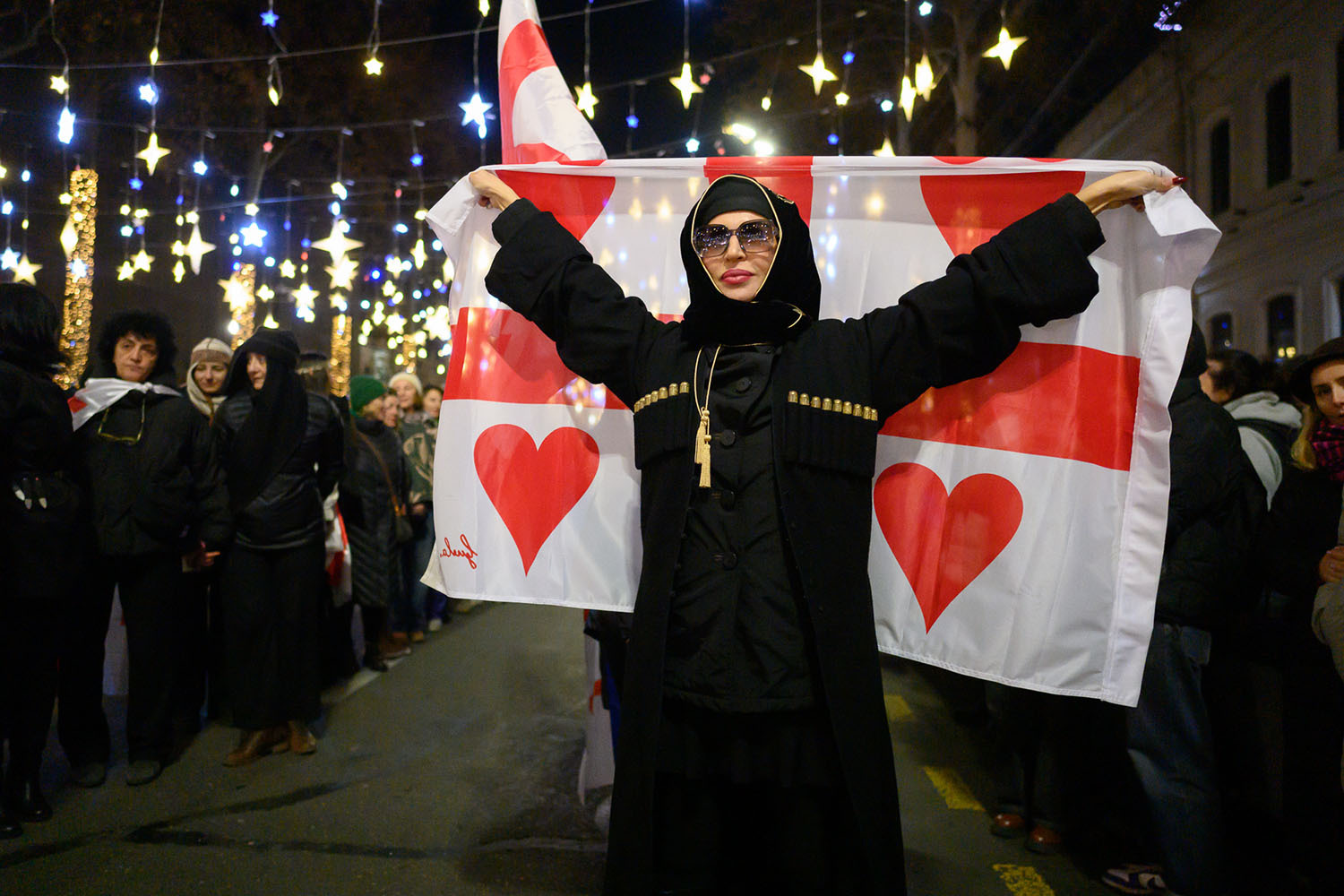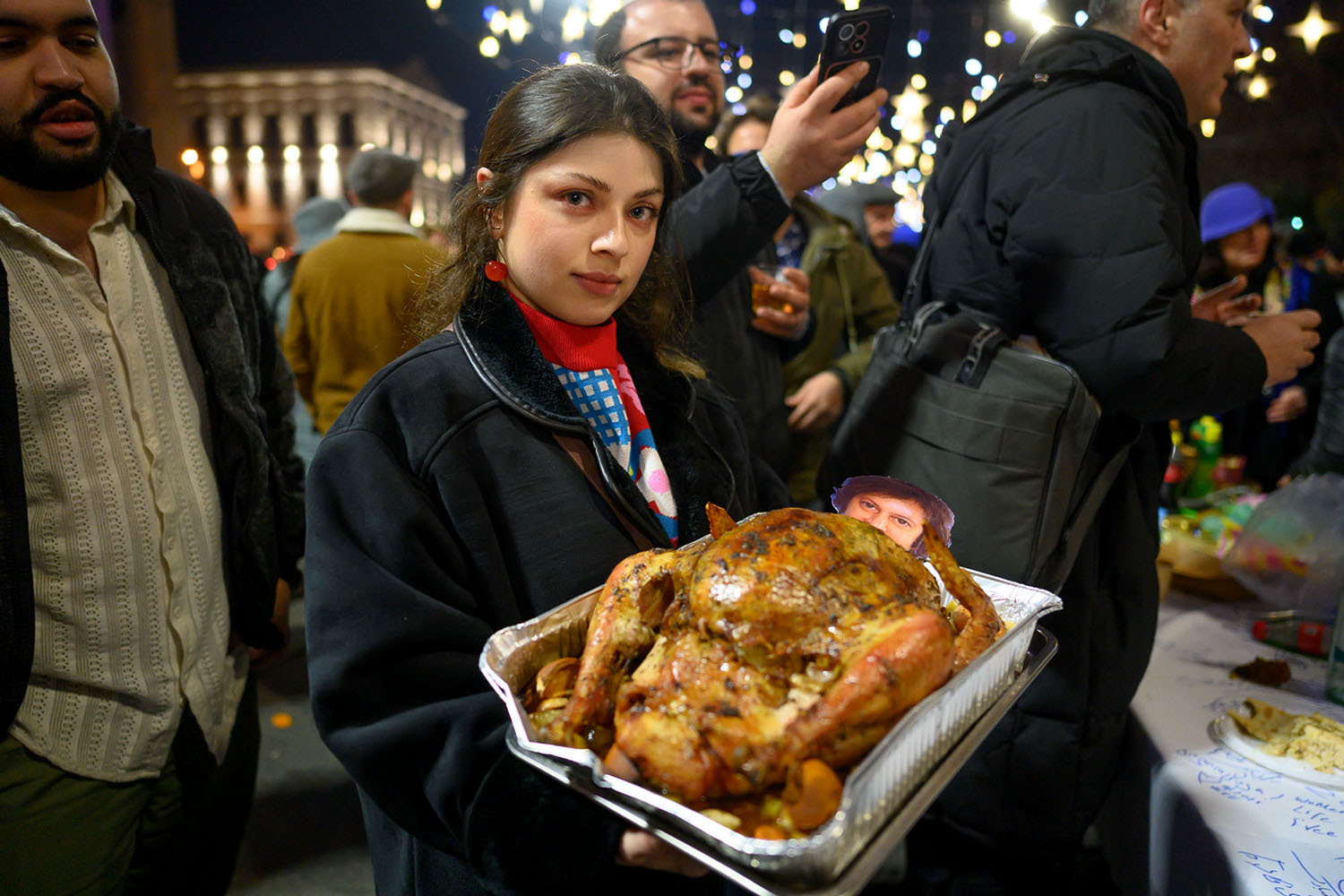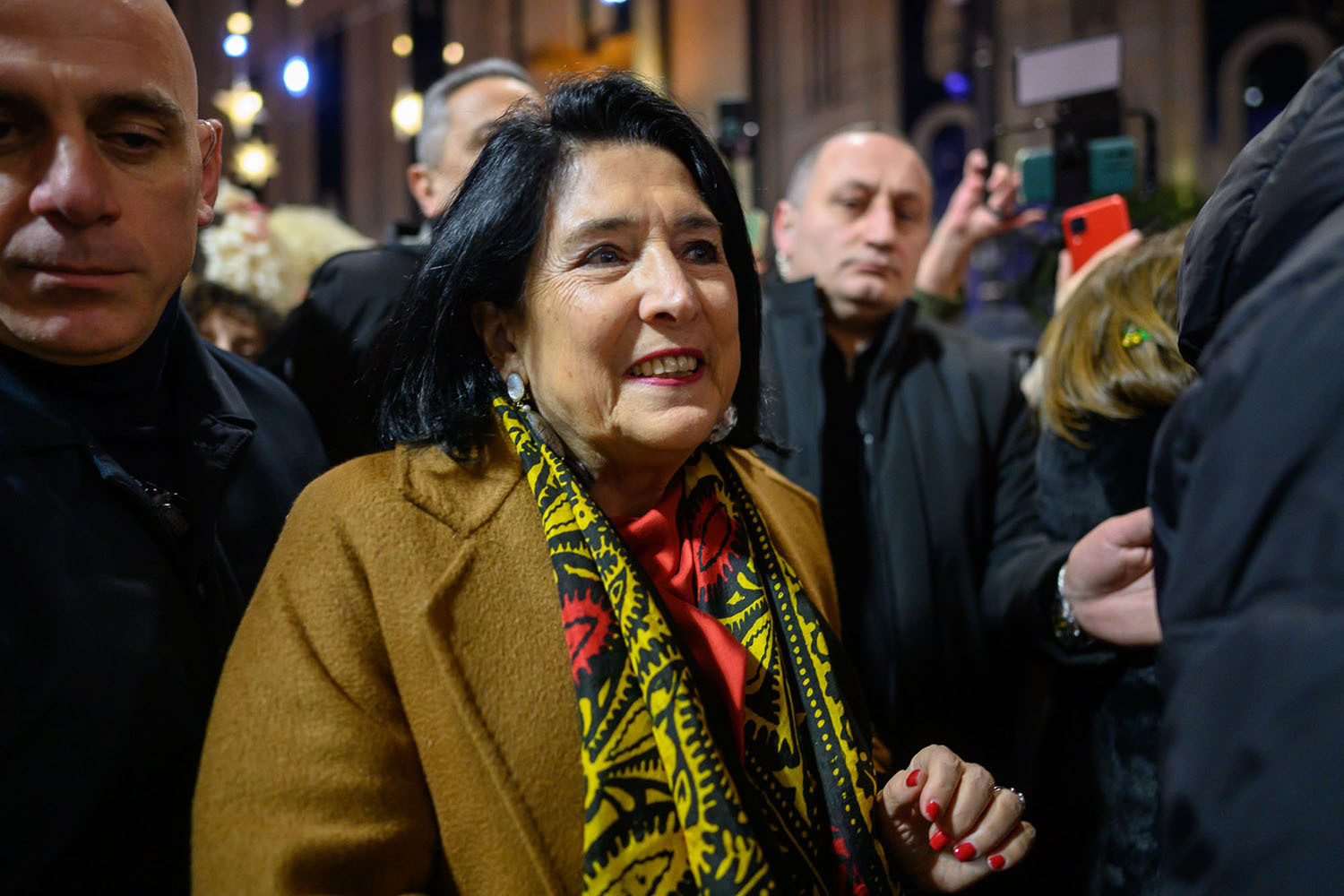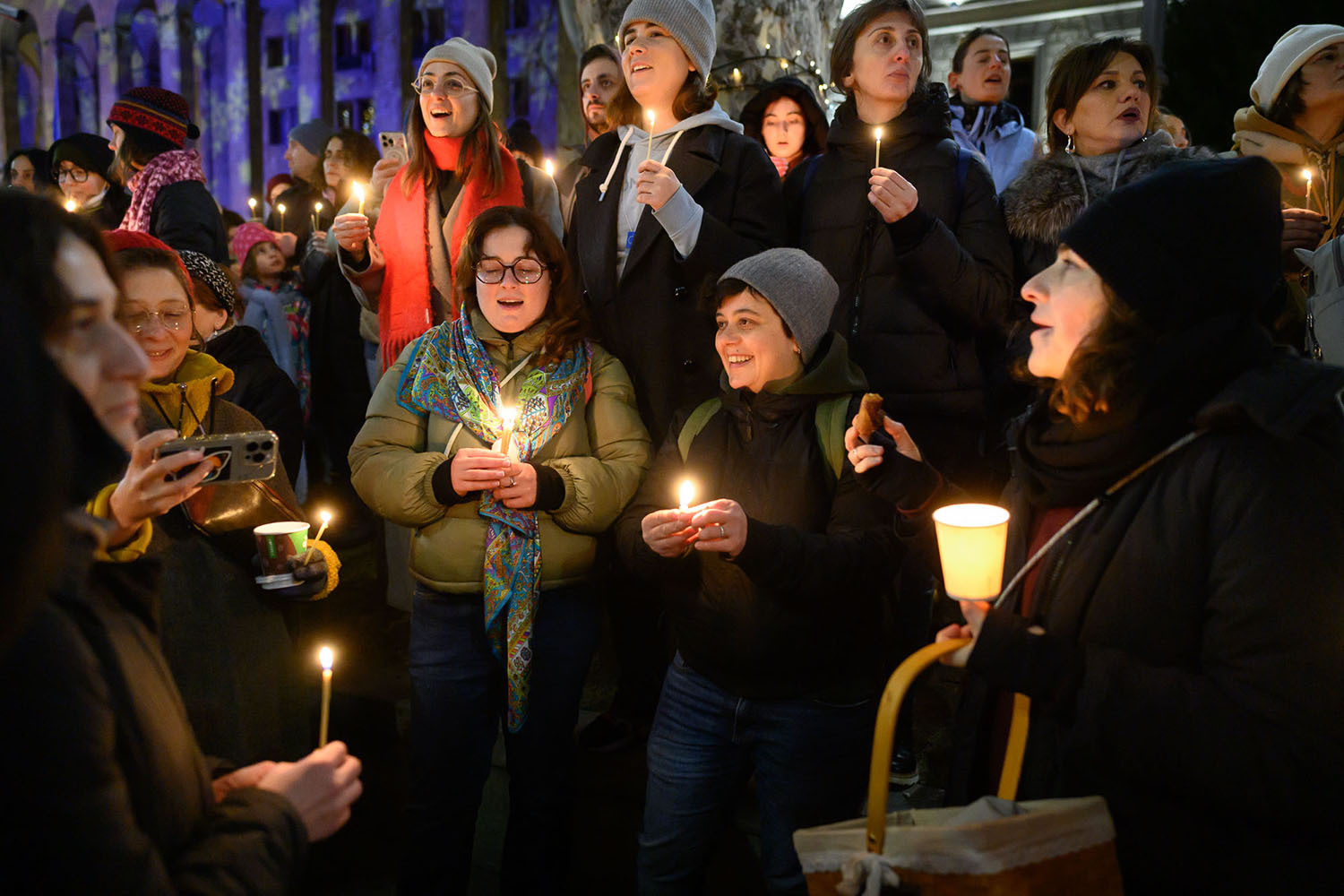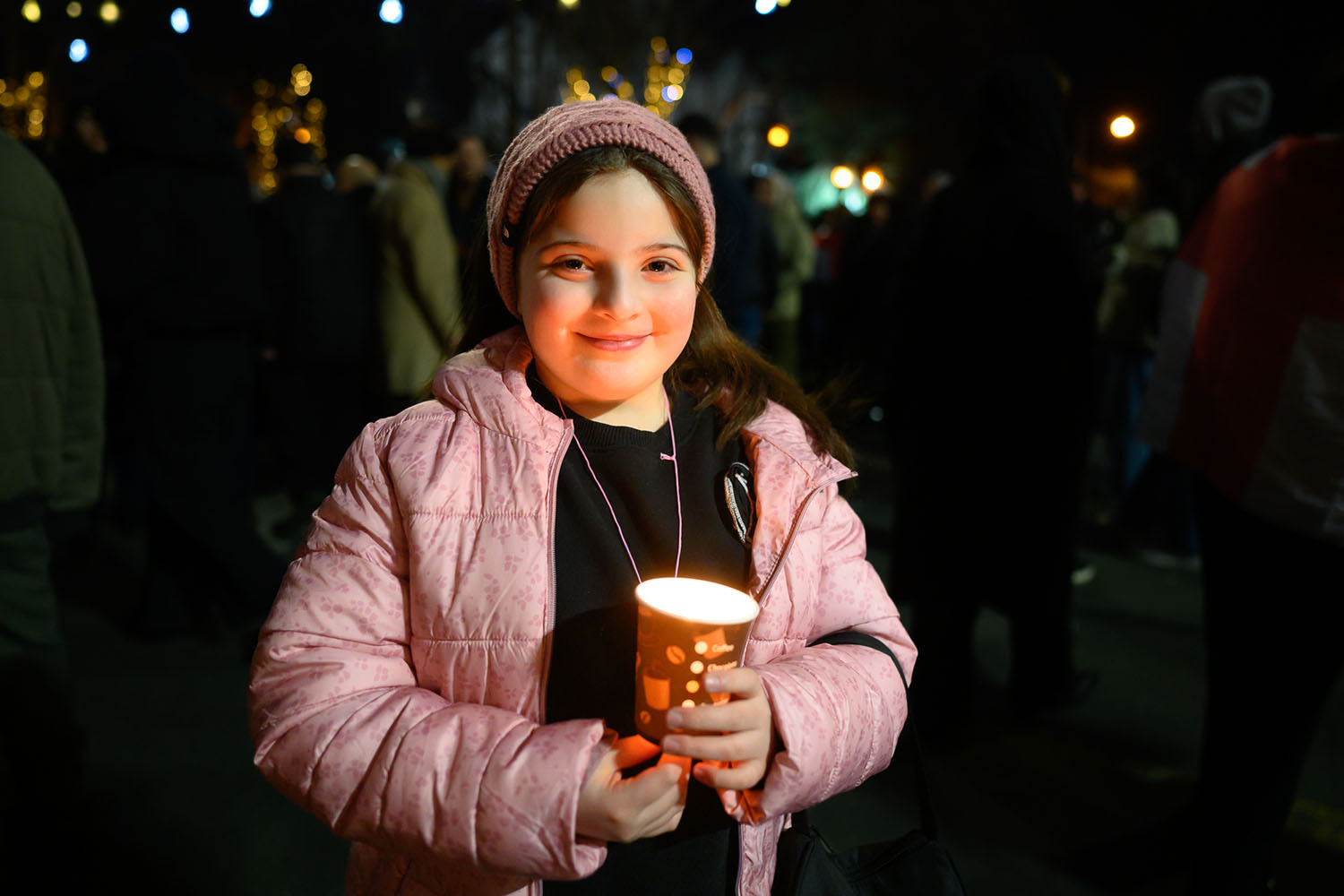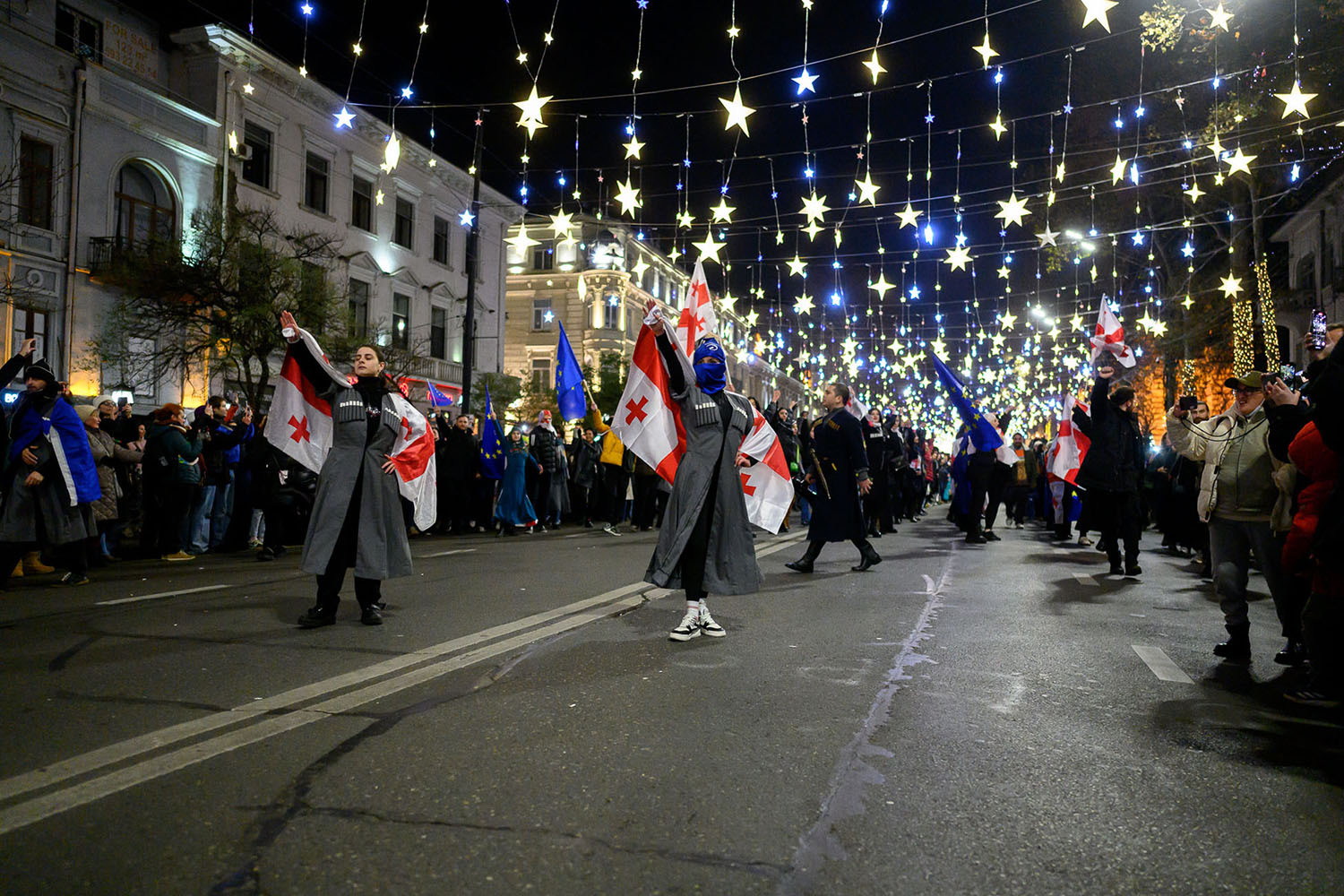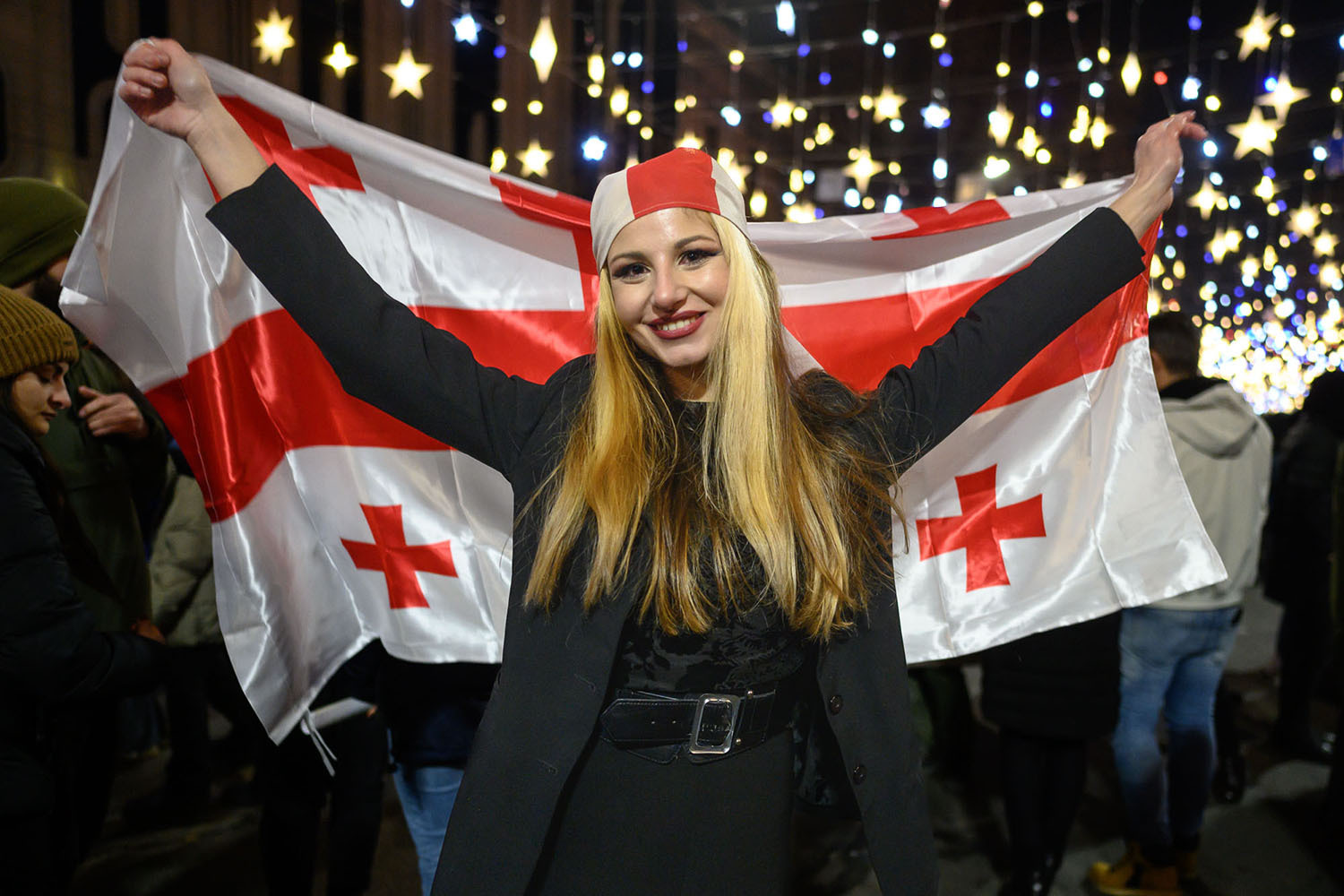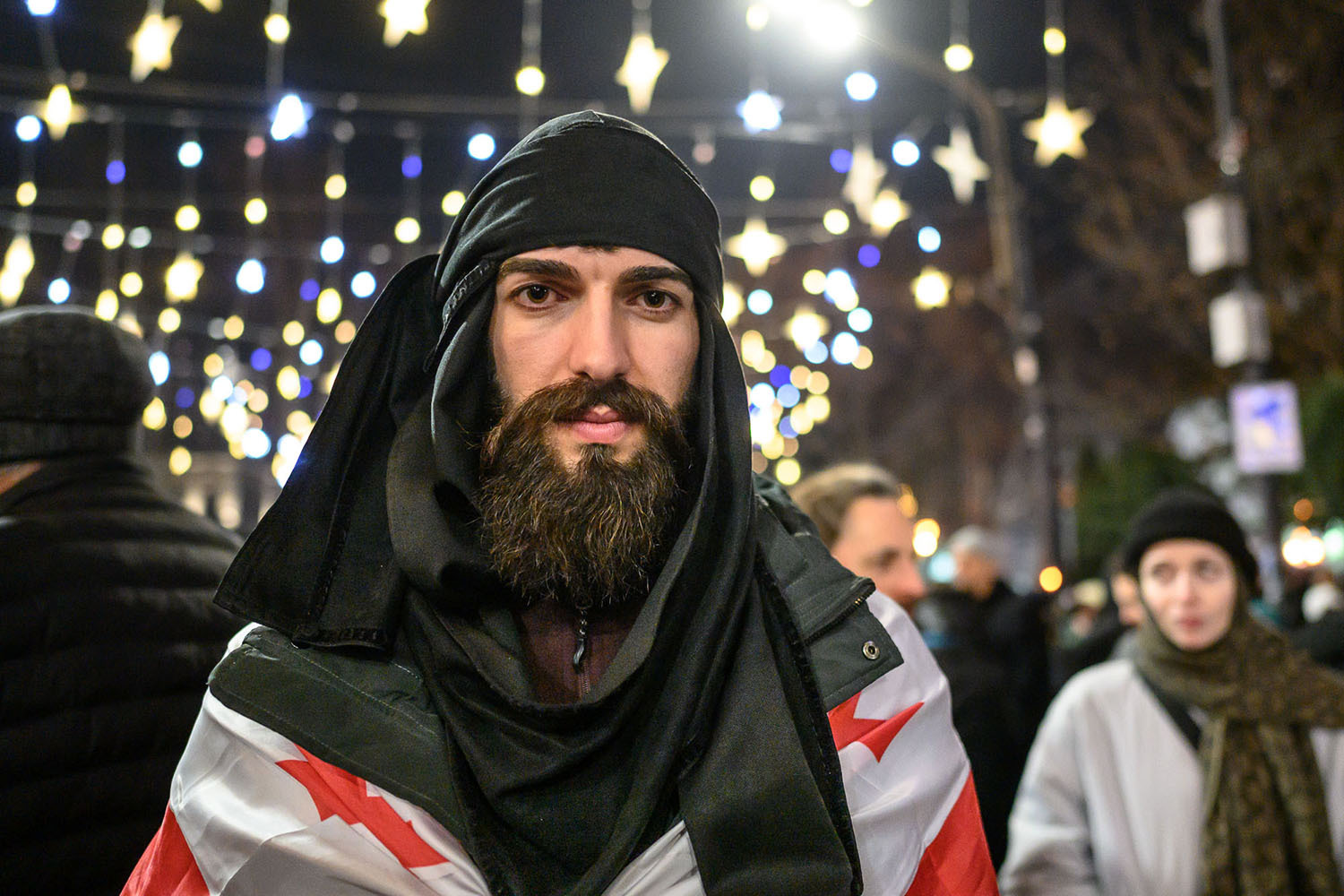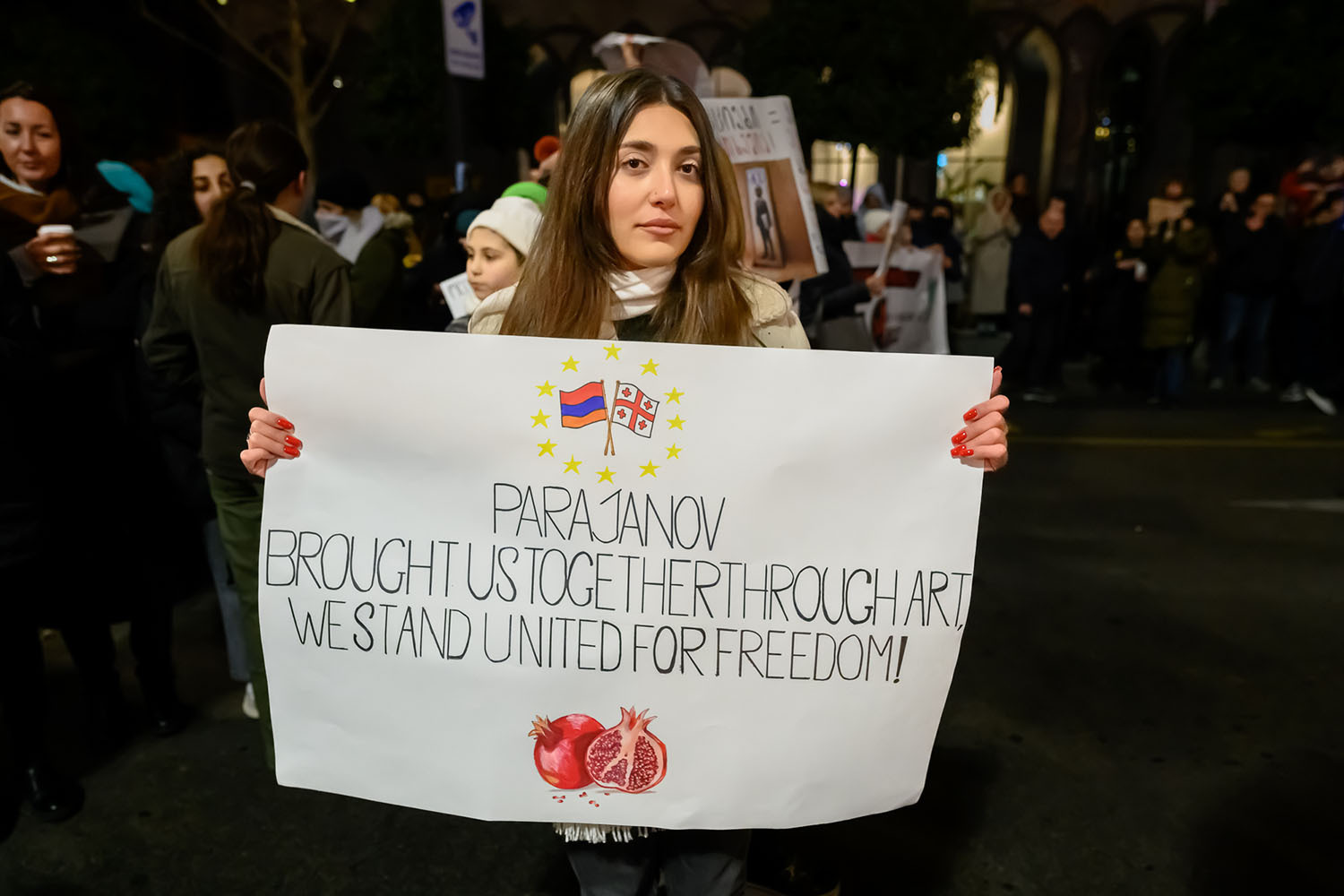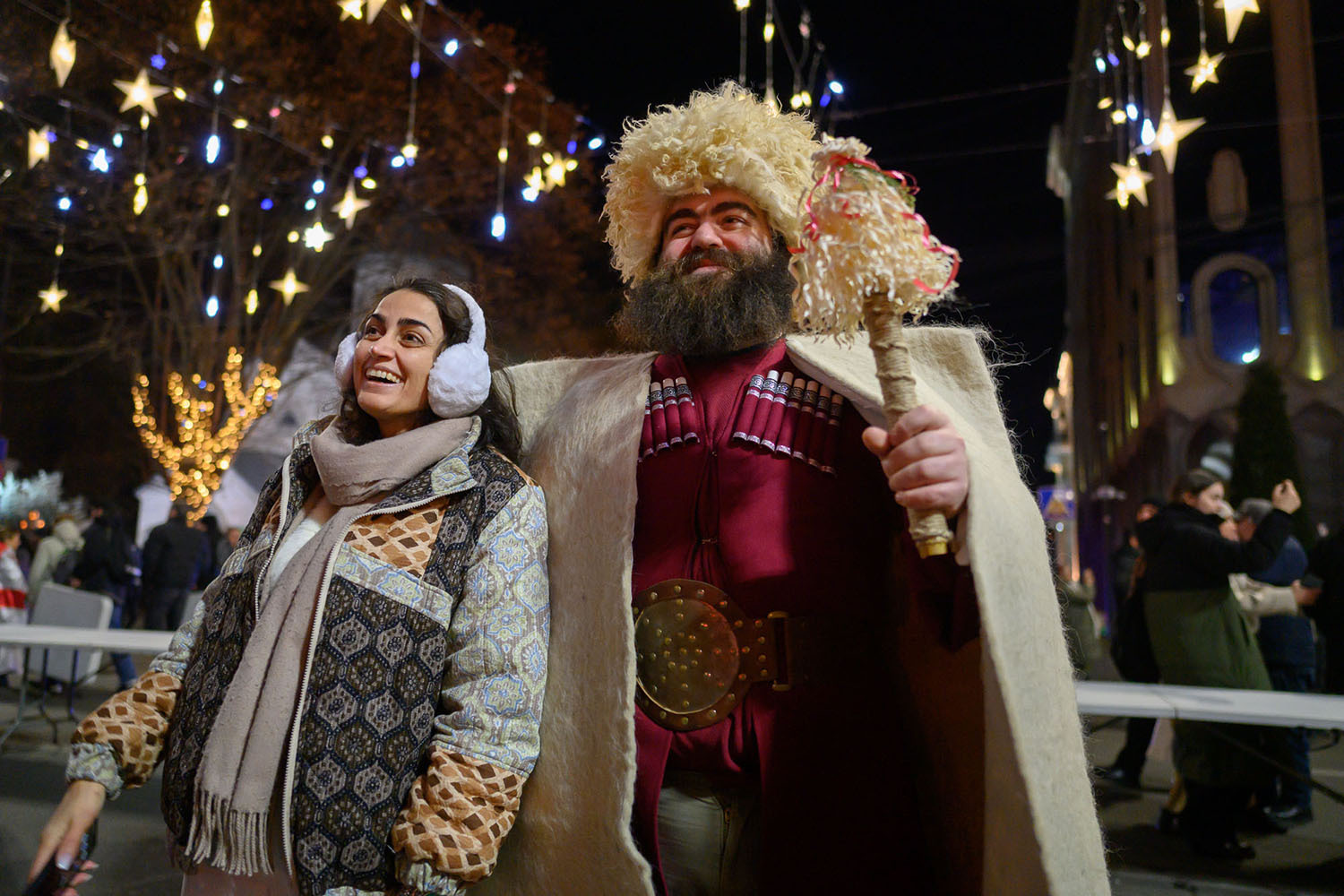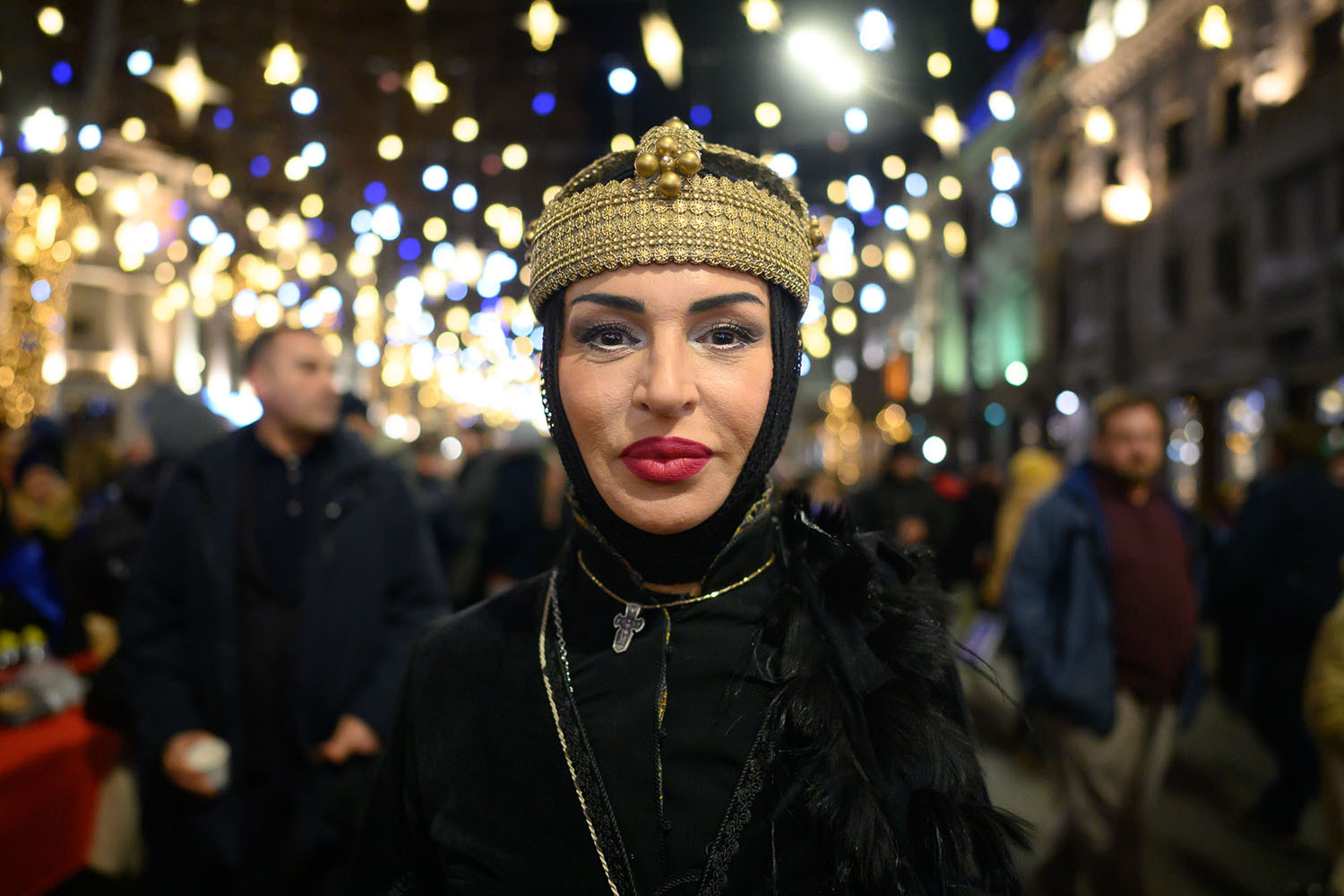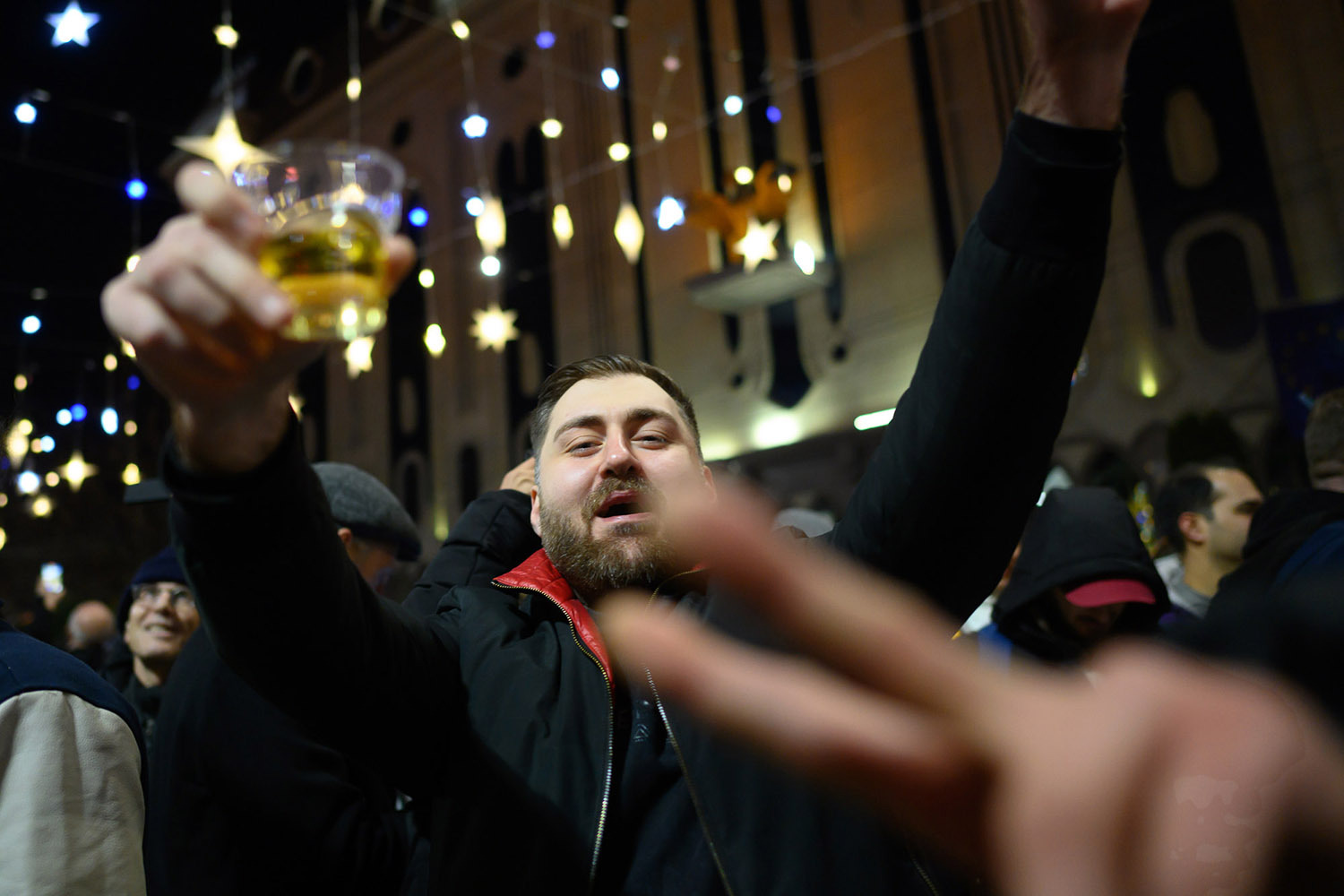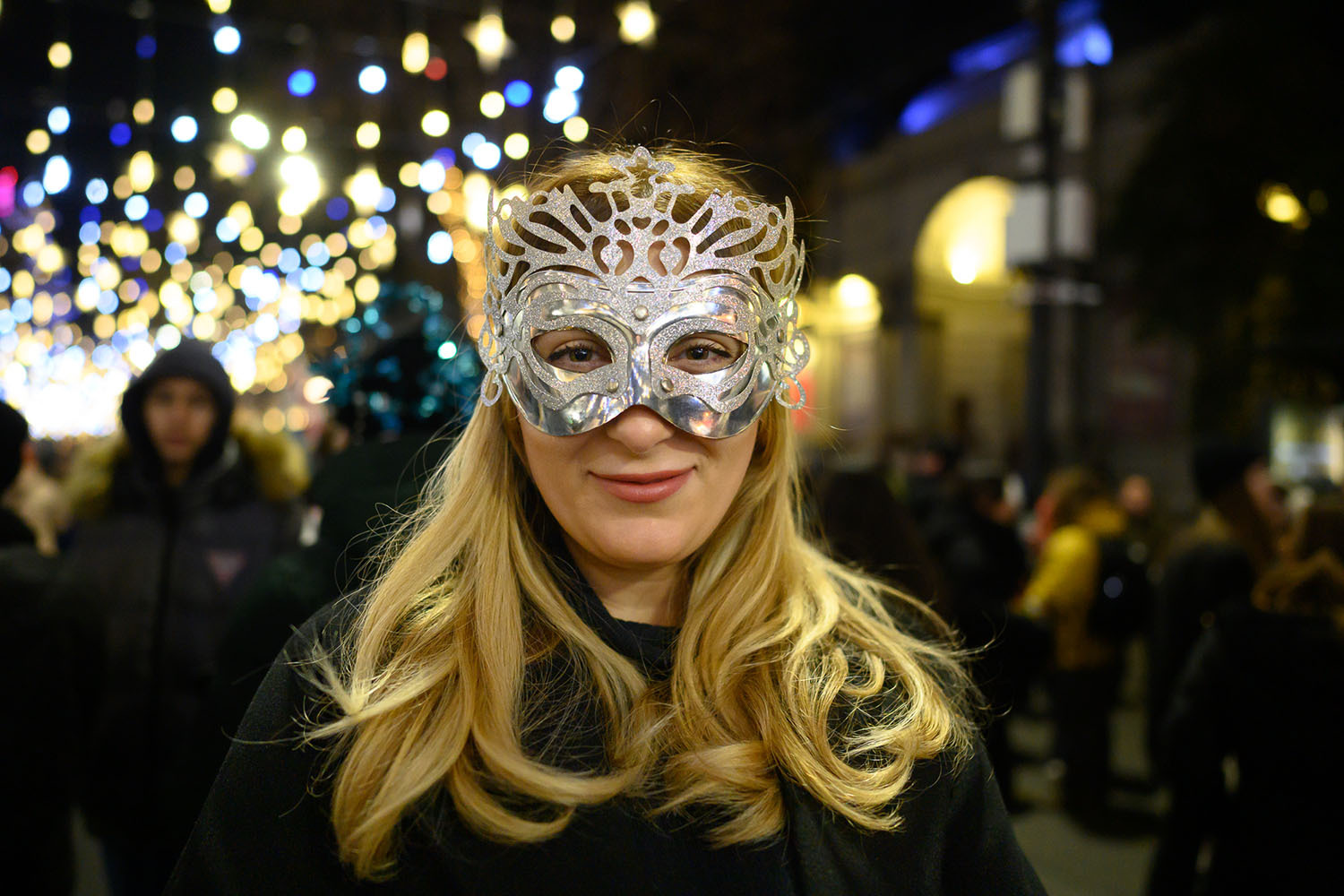Georgia | | Civil society, Politics
Tbilisi’s Holiday Protests: Georgians March and Dance for New Elections
13/01/2025, Redazione
In Tbilisi, street protests launched at the end of November calling for new elections continue. A large part of the population refuses to accept the outcome of a controversial vote to elect a new parliament on October 26. Photos and texts by Onnik James Krikorian
The international community has also expressed its concerns about the conduct of that election, saying that it did not meet the standards expected from a prospective member of the European Union. The trigger for the current demonstrations were comments made on 28 November by Georgian Prime Minister Irakli Kobakhidze, announcing the suspension of membership talks with the EU until 2028.
Though some charge that the Georgian opposition and now former President Salome Zourabichvili are organising the demonstrations, the protesters themselves deny such accusations. Though they might oppose the government, it was Kobakhidze’s remarks that pushed them out onto Tbilisi’s Rustaveli Avenue, they say. At least 70% of the population supports EU membership, therefore across the political spectrum. The number of protesters has declined noticeably, though it was never as large as opposition supporters claim, but also never as small as the government does.
Whatever the situation, the protests are largely confined to the capital, with very small gatherings in only some parts of the country. In response, whoever is coordinating the demonstrations has now turned to a series of daily marches and events in Tbilisi in order to keep some people on the streets in case another trigger occurs.
Among these new events held to call for new elections and the release of activists arrested at the beginning, a mass Khorumi War Dance was held on Rustaveli Avenue on December 22. There were also other marches, mainly for ethnic Georgians, but also a small Unity March for ethnic minorities held on December 26. New Year’s Eve was also marked by demonstrations outside parliament, with tables lined up with snacks and drinks to see in 2025. On January 6-7, protesters also celebrated Georgian Orthodox Christmas.

